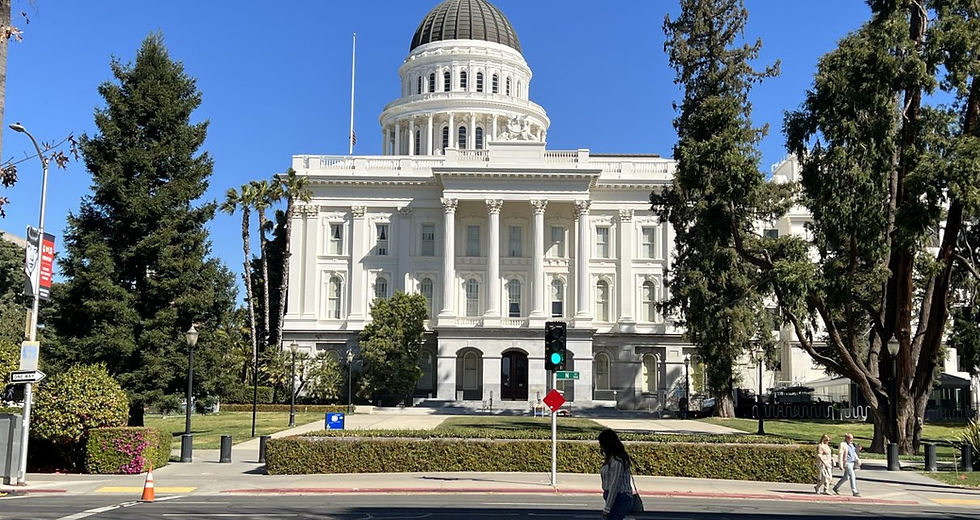A Critical Look at Senator Steven Bradford's Legislative Focus
- Citizens Coalition Admin

- Dec 3, 2024
- 2 min read
Reparations-Related Legislation

Senator Steven Bradford’s tenure in the California Legislature is characterized by lofty promises and questionable priorities, particularly his push for reparations for Black Californians.
While Bradford frames these efforts as key achievements, their actual potential to become law or deliver meaningful action is negligible. Given California's polarized political climate and fiscal constraints, these initiatives come across as symbolic gestures rather than substantive solutions.
Securing $12 million for reparations-related initiatives during a deficit year is notable but insufficient in addressing the vast claims of what a reparations program would require. Legislative failures such as SB 1403 and SB 1331—bills that never even reached a vote—further expose the lack of bipartisan support and political feasibility. Bradford’s portrayal of these as victories risks misleading constituents and distracting from more achievable goals.
Even his broader legislative efforts, like funding for historic communities such as Allensworth and low-income housing programs, while well-intentioned, lack the transformative impact necessary to address systemic inequities. These incremental initiatives often feel more like political maneuvering than meaningful progress.
"Ebony Alert" System
Bradford’s establishment of the "Ebony Alert" system, aimed at addressing the underrepresentation of Black missing persons in public safety responses, reflects a narrow but commendable focus. Operational since January 2024, the system has aided in the recovery of 14 individuals by August 2024. While a step forward, its necessity is debatable, as critics argue for reforms to existing systems like Amber Alerts to ensure equitable treatment for all.
The "Ebony Alert" highlights disparities but risks creating further division by separating issues along racial lines instead of addressing systemic flaws universally. Its success depends on measurable outcomes and whether it sets a precedent for targeted legislation or demonstrates the need for broader systemic reform.
Bradford Campaigning for Lieutenant Governor
As he campaigns for Lieutenant Governor, Bradford’s platform leans heavily on reparations and equity initiatives, raising concerns about his focus on symbolic over substantive policies. Missing from his agenda are concrete proposals for education reform, economic development, or public safety—areas where his leadership could make an immediate and measurable difference.
Bradford’s fixation on politically fraught issues like reparations risks alienating his broader constituency and diminishing his credibility. Communities are in dire need of actionable solutions to pressing challenges, not lofty promises without clear paths to realization. To be an effective advocate for Californians, Bradford must shift his focus to pragmatic, achievable policies that deliver tangible results.
Conclusion
Senator Bradford’s leadership has often been defined by ambition disconnected from reality. His legacy hinges on whether he can pivot from idealistic but impractical goals to address the urgent, actionable needs of the communities he claims to serve.
Californians deserve leadership that prioritizes impactful policies over symbolic gestures, and we at the Citizens Coalition for Change will continue to scrutinize his campaign closely.
Under California’s Constitution, the Lieutenant Governor serves as Acting Governor whenever the Governor is absent from the state, and automatically becomes Governor if a vacancy occurs. The Lieutenant Governor is the President of the California Senate and votes in case of a tie. Eleni Kounalakis is the current Lieutenant Governor. Her term in office is set to expire in 2026 due to term limits.






Comments